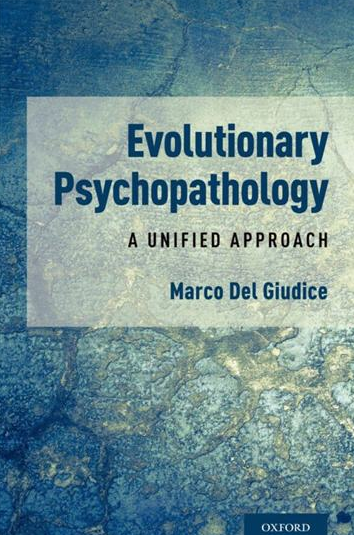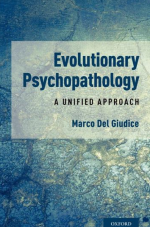Evolutionary Psychopathology: A Unified Approach by Marco Del Giudice, ISBN-13: 978-0190246846
[PDF eBook eTextbook]
- Publisher: Oxford University Press; Illustrated edition (August 10, 2018)
- Language: English
- 560 pages
- ISBN-10: 0190246847
- ISBN-13: 978-0190246846
Mental disorders arise from neural and psychological mechanisms that have been built and shaped by natural selection across our evolutionary history. Looking at psychopathology through the lens of evolution is the only way to understand the deeper nature of mental disorders and turn a mass of behavioral, genetic, and neurobiological findings into a coherent, theoretically grounded discipline. The rise of evolutionary psychopathology is part of an exciting scientific movement in psychology and medicine — a movement that is fundamentally transforming the way we think about health and disease.
Evolutionary Psychopathology takes steps toward a unified approach to psychopathology, using the concepts of life history theory — a biological account of how individual differences in development, physiology and behavior arise from tradeoffs in survival and reproduction — to build an integrative framework for mental disorders. This book reviews existing evolutionary models of specific conditions and connects them in a broader perspective, with the goal of explaining the large-scale patterns of risk and comorbidity that characterize psychopathology. Using the life history framework allows
for a seamless integration of mental disorders with normative individual differences in personality and cognition, and offers new conceptual tools for the analysis of developmental, genetic, and neurobiological data.The concepts presented in Evolutionary Psychopathology are used to derive a new taxonomy of mental disorders, the Fast-Slow-Defense (FSD) model. The FSD model is the first classification system explicitly based on evolutionary concepts, a biologically grounded alternative to transdiagnostic models. The book reviews a wide range of common mental disorders, discusses their classification in the FSD model, and identifies functional subtypes within existing diagnostic categories.
Table of Contents:
Acknowledgments
Abbreviations
Introduction
PART I – Foundations
Chapter 1. Human Nature in a Nutshell
Chapter 2. The Evolved Mind
Chapter 3. Individual and Sex Differences
Chapter 4. Life History Strategies
PART II – A Unified Approach
Chapter 5. Evolution and Mental Disorders
Chapter 6. The Life History Framework and the FSD Model
PART III – Common Mental Disorders
Chapter 7. Antisocial and Conduct Disorders
Chapter 8. The Schizophrenia Spectrum
Chapter 9. The Bipolar Spectrum
Chapter 10. The Autism Spectrum
Chapter 11. Attention-Deficit/Hyperactivity Disorder
Chapter 12. Personality Disorders
Chapter 13. Eating Disorders
Chapter 14. Depression
Chapter 15. Generalized Anxiety Disorder
Chapter 16. Posttraumatic Stress Disorder
Chapter 17. Specific Phobias
Chapter 18. Panic and Agoraphobia
Chapter 19. Social Anxiety Disorder
Chapter 20. Obsessive-Compulsive Disorder
PART IV – Conclusion
Chapter 21. A Look at the Future
Marco Del Giudice is a professor of psychology at the University of New Mexico. His work explores a broad range of topics at the intersection of human behavior, evolution, and development. Specific research areas include stress neurobiology, developmental plasticity, sex differences in personality and social behavior, and evolutionary models of mental disorders.
What makes us different?
• Instant Download
• Always Competitive Pricing
• 100% Privacy
• FREE Sample Available
• 24-7 LIVE Customer Support









Reviews
There are no reviews yet.